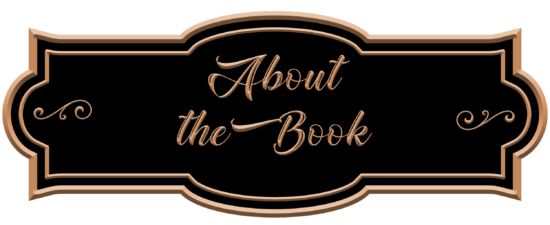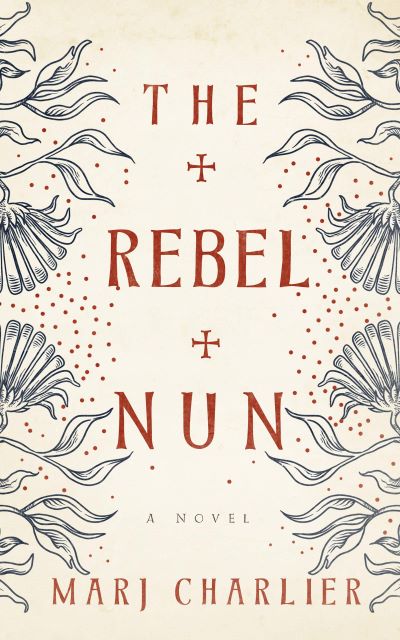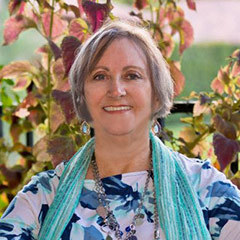There was a long period of time, perhaps comprising most of the 1950s, when medieval fiction seemed so irrelevant that it fell out of favor. Maybe for many avid book readers, post-war life was such a relief and the future so bright that there was no need for historical precedents that would soothe souls and tamp down worries.
Here in the third decade of the 21st century, according to my agent anyway, historical fiction is still harder to sell to publishers than many other genres—particularly romance, mysteries, thrillers, sci-fi, and young adult (the top 5 according to masterclass.com). Still, given the recent flood of World War II and Cold War novels, it appears that a historical context isn’t the problem. What perceived relevance drives the popularity of mid-20th century novels? Perhaps an interest in the rise of fascism and its parallels to some of today’s political shifts. Perhaps a curiosity about the generation that we’re now losing – parents and grandparents who lived through or served in that time.
Recently, the COVID pandemic made any novel about the plagues of the Middle Ages suddenly relevant, be it Camus’s The Plague, Rachel Kadish’s The Weight of Ink, or Geraldine Brooks’s Year of Wonders. Indeed, it’s hard to find any historical novel about the Dark Ages that doesn’t at least touch on the ravages of the plague, which was a constant threat for centuries, as there were many rolling pandemics, not just one.
For a long time, a few sub-genres have dominated medieval historical fiction—military fiction, romance, especially romance among royals and royal families, and histories of political dynasties. These books have avid readers, evidenced by their overwhelming presence on best-seller lists in the category. (See https://www.amazon.com/gp/bestsellers/books/17745821011/ref=pd_zg_hrsr_books).
Medieval fiction, however, can give us historical perspectives on more than just the plague, war, and queens. A few novelists have expanded the medieval history category in ways that speak to current concerns. Books of the genre and time period show us the historical precedents for how societies have responded to disruptive mass migrations, religious intolerance, and domestic abuse, to name a few.
As a reviewer for Midwest Book Review, I have recently read The Lost Apothecary, a debut novel by Sarah Penner about an apothecary (both the name of a pharmacy and the pharmacist) who provides lethal doses of medicines to women who need to rid themselves of cruel or infidel men in their lives. The misogyny and domestic abuses at the core of the novel are as relevant today as the #MeToo Movement, even if the remedies women sought were anachronistic (to say the least.)
Revelations by Mary Sharratt details the story of another woman who found a way to escape the difficulties of motherhood and marriage, which were harsher in the Middle Ages but not that different from those of many women in abusive domestic captivity. Margery Kempe was a real-life, pious 14th-century woman whose husband wanted nothing more than to keep her pregnant. She came close to death in childbirth many times, and her dreams of seeing the world were squashed by her domestic workload. After giving birth to 14 children—most of whom lived!—she finally said enough, took off, literally, across the known world, travelling alone and with found companions from England to Jerusalem and back. The story will disabuse readers of any thought that Margery’s choice to make the pilgrimage was the easy one. Sharratt’s novel touches on themes of religious choice, the debasement of women, and the patriarchal trap of motherhood, issues that still resonate.
Two earlier novels of note, The Birth of Venus by Sarah Dunant and Pope Joan by Donna Woolfolk Cross, made strong cases that feminism isn’t a new phenomenon but a tradition at least as old as the Middle Ages and Renaissance. And while the Weight of Ink detailed the effects of the plague in London, it also carried a feminist theme and explored religious intolerance and the rebirth of secular philosophy.
My own recently released novel, The Rebel Nun, expands the medieval genre to include another kind of religious woman—a nun who led a rebellion against the Catholic Church in an effort to protect her monastery from misogyny and patriarchal interference by the local bishop. While also embracing the issue of limited choice for women, it is set in a time when women were being pushed out of the clergy and out of church leadership, a movement relevant to the question of women’s role in religious leadership today. And The Candlemaker’s Woman, my forthcoming novel, looks at mass migration—in this case, the diaspora of the third-to-sixth centuries—from the point of view of a young woman who is neither royal nor of a military family. Her tribe is made up mostly of farmers running from their own dystopia, not unlike many refugees of today.
These few examples, though, represent only a tiny few of the possible analogous stories authors can draw from life in medieval times that show how far we’ve come and yet how little distance we’ve actually travelled. There are hundreds of stories of real characters and opportunities to create composite characters that can bring a historical context to issues of race, class distinctions, economic immobility, wealth disparities, access to health care, homelessness, and helplessness.
These stories, if unearthed and given flesh and blood, will find an entirely new audience by expanding the medieval historical sub-genre beyond Roman legions and barbarian warriors, queens, kings, and royal lineages, which while romantic, give us little we can relate to (other than dreams of marrying a prince?).
Of course, the barrier to more fiction that reaches back 1,200 to 1,500 years is the paucity of documentation and contemporary histories. The Dark Ages were so named, not for a lack of advances in technologies, agriculture, and medicine, but because so much classical knowledge and secular writing was hidden and forbidden by the institutions of the time—particularly the Church. Research into the time period can take years, and the financial rewards (as for most novelists) can be puny.
Nevertheless, I hope that more publishers see the opportunities here, recognize the potential, and break free from their ecumenical focus on WWII, and give novels from this earlier period a moment in the limelight.

Publication Date: March 2, 2021
 Marj Charlier’s The Rebel Nun is based on the true story of Clotild, the daughter of a sixth-century king and his concubine, who leads a rebellion of nuns against the rising misogyny and patriarchy of the medieval church.
Marj Charlier’s The Rebel Nun is based on the true story of Clotild, the daughter of a sixth-century king and his concubine, who leads a rebellion of nuns against the rising misogyny and patriarchy of the medieval church.
At that time, women are afforded few choices in life: prostitution, motherhood, or the cloister. Only the latter offers them any kind of independence. By the end of the sixth century, even this is eroding as the church begins to eject women from the clergy and declares them too unclean to touch sacramental objects or even their priest-husbands.
Craving the legitimacy thwarted by her bastard status, Clotild seeks to become the next abbess of the female Monastery of the Holy Cross, the most famous of the women’s cloisters of the early Middle Ages. When the bishop of Poitiers blocks her appointment and seeks to control the nunnery himself, Clotild masterminds an escape, leading a group of nuns on a dangerous pilgrimage to beg her royal relatives to intercede on their behalf. But the bishop refuses to back down, and a bloody battle ensues. Will Clotild and her sisters succeed with their quest, or will they face ex-communication, possibly even death?
In the only historical novel written about the incident, The Rebel Nun is a richly imagined story about a truly remarkable heroine.

‘The Rebel Nun is a boldly imagined story of one early medieval woman’s struggle against the societal forces that constrained her. It draws on historical sources that briefly mention—and condemn—the insurrection that two noble nuns led within their abbey, in Poitiers, in 589. On the basis of this sparse information, Marj Charlier imagines the incident from the perspective of one of these nuns, the noblewoman Clothild, and embeds these events within the larger story of Clothild’s life. The result is an engaging and thought-provoking tale.’ –Samantha Kahn Herrick, Associate Professor of History, Syracuse University
‘Marj Charlier takes an obscure sixth-century tale and turns it into a stunning story of a nun caught up in the misogyny of the early Christian church. Led by Clotild, a king’s bastard daughter, a group of nuns attempts to rescue their monastery from the all-male church hierarchy. Extensively researched and rich in historical detail, The Rebel Nun tells of a time when women were chattel, when priests questioned whether females had souls. Charlier’s artfully written account of Clotild’s struggle to save her medieval sisterhood from the dominance of kings and bishops is a perfect novel for today’s women.’ — Sandra Dallas, New York Times bestselling author
‘Vividly imagines one of the most fascinating events to occur in sixth-century Gaul, bringing into focus the complexity of the early centuries of Western Christianity as the Church struggled to define its positions on clerical celibacy, the role of women, pre-Christian traditions, and its relationship to secular power. Scholars have long been fascinated with Gregory of Tours’s account of how a rebellion of nuns from the monastery of the Holy Cross in Poitiers supposedly resulted in acts of murder, plunder, and unplanned pregnancies. It is a moment that has been calling out for a writer to do it justice in a work of historical fiction, but which feat no one has dared to attempt—until now. Marj Charlier’s The Rebel Nun brings the sights, sounds, and smells of this event and its aftermath to life in a richly imagined story that is firmly rooted in equal parts rigorous historical research and inspired, creative imagination.” –Dorsey Armstrong, PhD, professor of English/medieval studies at Purdue University, and lecturer for The Great Courses (The Medieval World, The Black Death, and others)
‘What could lead nuns to armed rebellion?…This thoughtful imagining of the underlying causes and characters involved in the revolt centers on Clotild, the leader of the insurrection…Charlier carefully constructs a narrative that positions Clotild, a pagan at heart despite her outward piety, as a reluctant revolutionary who pushes for fairness in a Christian world increasingly dominated by men. With power available to so few women, Clotild dares to imagine freedom, despite its cost.’ –Booklist
‘The Rebel Nun is a gripping, well-told story of women fighting against a church and society dominated by men who are determined to defeat them in body and spirit. A great tale that will immerse you in a world so different—and not so different—from our own.’ –Philip Freeman, Fletcher Jones Chair of Western Culture at Pepperdine University, author of Saint Brigid’s Bones
‘The Rebel Nun is a wildly original, suspenseful account of a group of nuns in medieval France who must endure hardships and treachery from both outside and within their walls. It feels both historically authentic and startlingly contemporary, and I loved every word of it.’ –Elizabeth Stuckey-French, author of The Revenge of the Radioactive Lady
‘The Rebel Nun is a gripping tale of heroism and audacity in the least likely of guises—a renowned cloister under the heel of the medieval church. With meticulous research and in exacting detail, Marj Charlier brings to light the remarkable exploits of Clotild, who leads her fellow sisters on a daring escape that culminates in bloody revolt, and a place in history.’ –Denise Heinze, author of The Brief and True Report of Temperance Flowerdew
‘The story of a community of women in crisis and the power they found through their will to save themselves, The Rebel Nun tells the fictional truth behind the historical rebellion of the Holy Cross nuns in 589 CE, as recounted in her latter days by one of the rebellion’s leaders, Clotild … Rich in facts and foreshadowing, the historical novel The Rebel Nun finds in the nuns’ rebellion, and in Germanic tribal paganism, an inspirational morality tale and historical precedent for modern women to connect with their own powers, no matter the stakes.’ –Foreword Reviews
‘The Rebel Nun is a well-written window into the life of a sixth-century royal bastard and the changing landscape of holy power structures. Charlier writes a strong voice for Clotild, with vivid descriptions of a daily life that brings readers along into her world. The research shows, and Charlier does an excellent job of seamlessly integrating the historical record with her own fiction.’ –Historical Novels Review
‘A startling look into a world I never imagined visiting—a sixth-century nunnery, where one bride of Christ only a generation away from paganism breaks her vows of obedience to the church’s male hierarchy and makes it her mission to battle the corruption of bishops oppressing the sisters of the Holy Cross. A well-wrought yarn reflective of historical fact.’ –Darryl Ponicsán, author of Eternal Sojourners


[rafflepress id=”39″]

 Marj Charlier began her writing career at daily and mid-size newspapers before joining the Wall Street Journal as a staff reporter. After twenty years in journalism, she pursued her MBA and began a second career in corporate finance. The Rebel Nun is her first historical novel, and her eleventh published novel.
Marj Charlier began her writing career at daily and mid-size newspapers before joining the Wall Street Journal as a staff reporter. After twenty years in journalism, she pursued her MBA and began a second career in corporate finance. The Rebel Nun is her first historical novel, and her eleventh published novel.






















I feel like my experience with medieval historical fiction has not been that they are unsatisfying because of lack of relevance but rather a tendency to an inappropriate, anachronistic imposition of modern mindsets upon the characters in the setting. This is what I often call “girl in pants” stories, due to a common element added by authors who cannot seem to imagine anything else was ever done or would have been consented to in the past, except by “big meanies” who evilly uphold a status quo that all of the “good guys” plainly see is wrong.